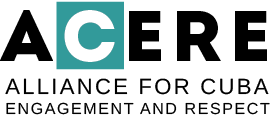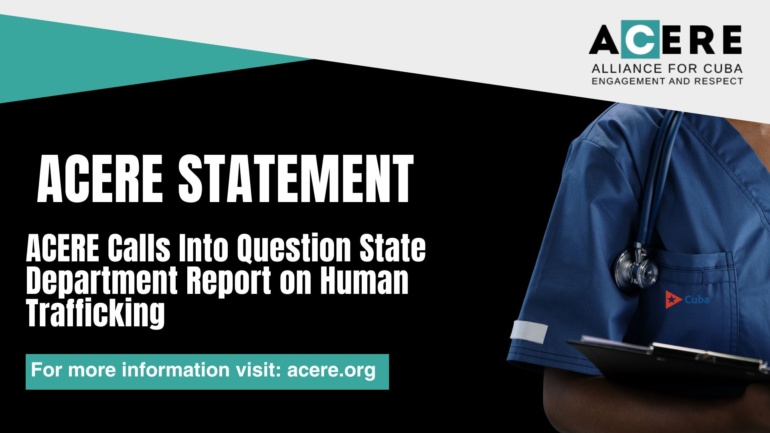The Alliance for Cuba Engagement and Respect (ACERE) mourns the passing of former U.S. President James Carter, who both during and after his term in office worked tirelessly to improve relations between Cuba and the U.S. and promote common-sense policies toward the island.
Shortly after taking office in 1977, Carter proclaimed in a secret presidential directive that “we should attempt to achieve normalization of our relations with Cuba,” initiating a series of actions to improve diplomatic ties, remove travel restrictions and advocate directly for Cubans’ human rights.
Through his public service and humanitarianism, the 39th President left indelible marks on U.S.-Cuba ties, most notably by establishing the U.S. Interests Section in Havana and the Cuban Interests Section in Washington, the first diplomatic posts between the neighboring countries since the Cuban revolution. Carter’s first chief of mission in Havana was the recently deceased Wayne S. Smith, a veteran diplomat who dedicated his life to improving U.S.-Cuba relations both inside and outside of the U.S. government.
Through direct negotiations with Cuban authorities during his term in office, Carter was able to secure the release of 3,000 prisoners in Cuba and initiate family reunification visits for Cuban Americans, both positive steps in advancing human rights on the island and reconnecting families divided in the aftermath of the Cuban revolution.
Carter keenly understood that diplomatic dialogue rather than punishment and isolation was far more likely to advance U.S. interests in Cuba, and his tenure as president laid the groundwork for cooperation on immigration and national security issues that have served both nations until today.
Even under the duress of the 1980 Mariel boatlift, which threatened his prospects for re-election, Carter said of his decision to choose compassion over expediency in allowing 125,000 Cuban rafters to enter South Florida: “Once those boats were loaded, as President, I had a choice to treat them as human beings with a precious light, or to see their lives lost at sea, and I did what was right.”
Declassified State Department documents reveal that had he been elected to a second term in 1980, Carter intended to lift the U.S. embargo on Cuba while continuing to push for increased democratization on the island.
After his presidency, President Carter visited Cuba twice, in 2002 and 2011, condemning the U.S. embargo live on Cuban television while also calling for increased domestic reforms. Through his work at the Carter Center, the former president would often say, “the differences between our two countries can be resolved peacefully through mutual respect and negotiation,” underscoring his conviction that principled engagement was a more effective tool in working with Cuba than sanctions and threats.
Upon leaving Havana in 2011, Carter affirmed: “Both privately and publicly I continue to call for the end of our economic blockade against the Cuban people, the lifting of all travel, trade, and financial restraints, an end to U.S. policy that Cuba promotes terrorism, for freedom of speech, assembly, and travel in Cuba, and the establishment of full relations between our two countries.”
ACERE could not agree more with former President Carter’s words, and honors his legacy as a leader who firmly believed that negotiation, respect and dialogue could – and still can – advance U.S. objectives and interests in Cuba.



